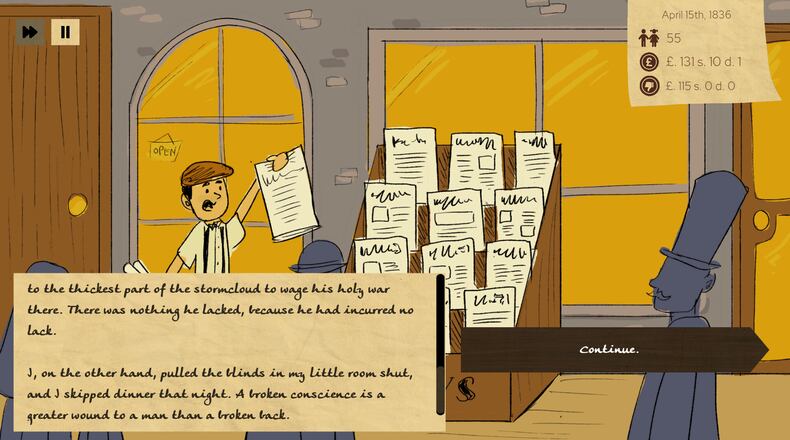The game was created by international missionary Scott Tipton with the help of Cedarville seniors Mason Beale, Christopher LaFave and Jackson Adams, all computer science students.
“I remember that before I was a Christian, I was impacted by the media I consumed in both positive and negative ways, and I realized this was a powerful way to communicate ideas,” Tipton, who serves in Spain, said. “I saw an opening for positive, Gospel-focused content.”
Mr. Mueller’s Grand Experiment is an interactive story based on 19th century Englishman George Mueller, who ran several orphanages exclusively funded by faith in God’s provision. The game is designed to enrich players’ lives with the story of someone who had great faith in God, while giving them fun choices and multiple endings.
“The goal of the game is to show people what great faith in God looks like,” Tipton said. “It was designed to cause people who may think Christianity is flawed or irrelevant to take another look.”
George Landon, professor of computer science, saw this game as “an excellent opportunity for a senior capstone project.”
“This was a perfect project for our students. We have students who want to make video games and appreciate the concept of games that could be used for evangelism,” Landon said.
The students collaborated with Tipton through email and regular video conferencing over several months, taking on the roles of writing the code to turn the written script into computer data, creating the graphic design artwork and creating menus to guide the player experience.
Beale, the team leader, was excited to be part of this project and inspired with the concept and purpose of the game.
“Working on this project helped me to experience what is required to follow through on a long-term project ... How to work through feedback, determine the best tools and ideas and how to work as a team. It really allowed me to experience what real-world projects look like,” he said.
“As I thought through the objectives and worked with my classmates, I began asking various questions, including what else we could do in the sphere of video games and media to engage people with truth, to cause people to consider the Christian faith,” Beale added.
About the Author


